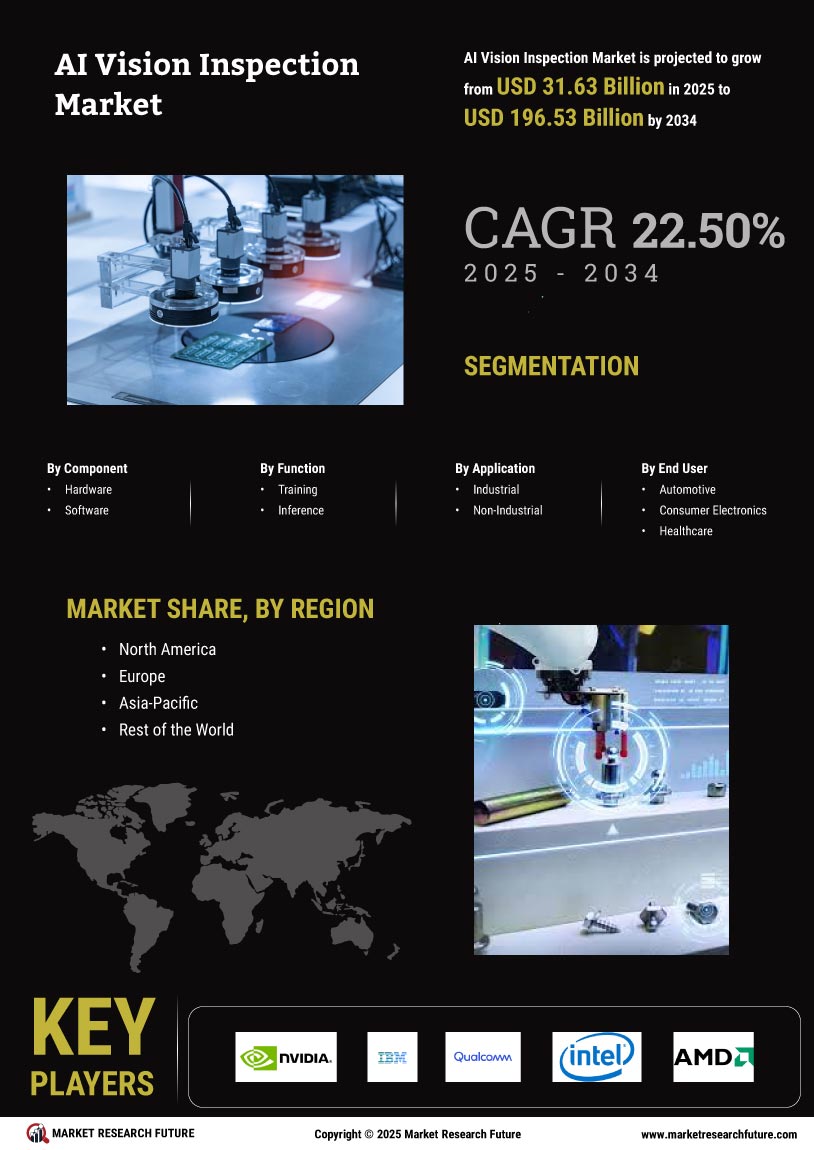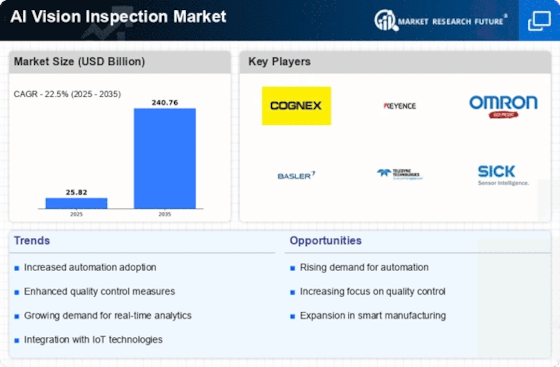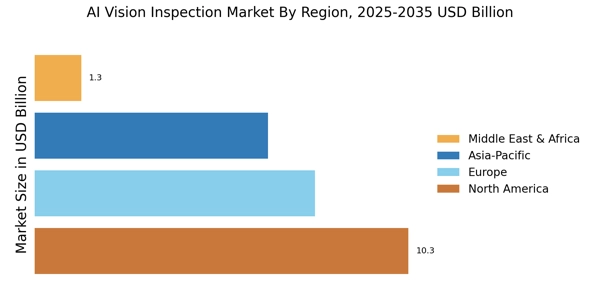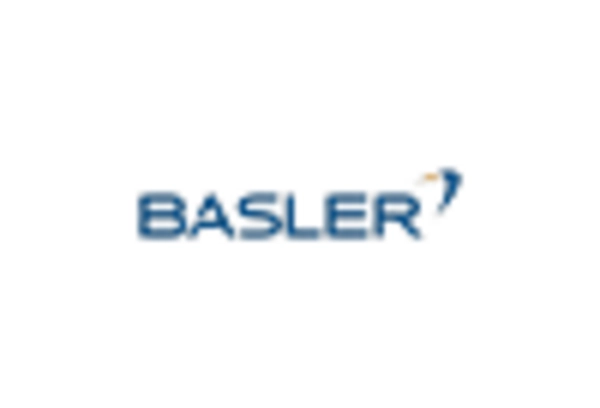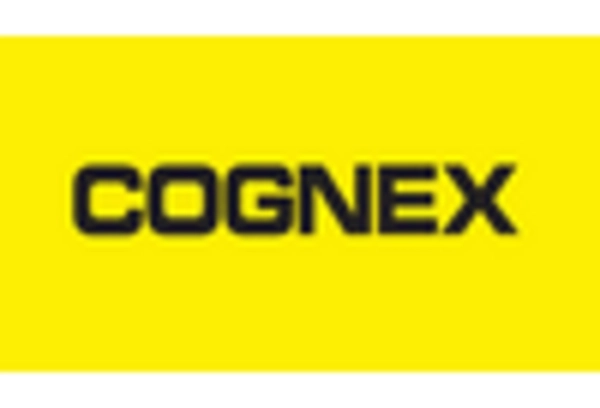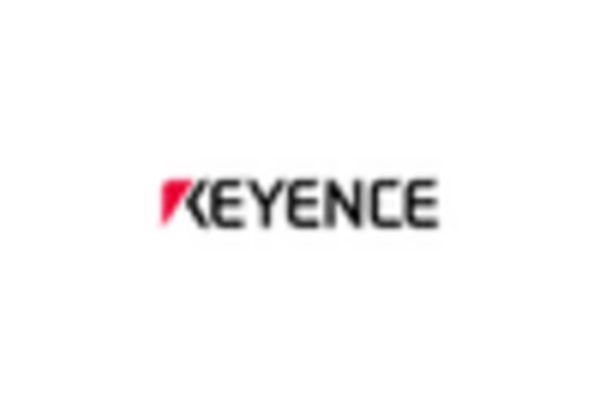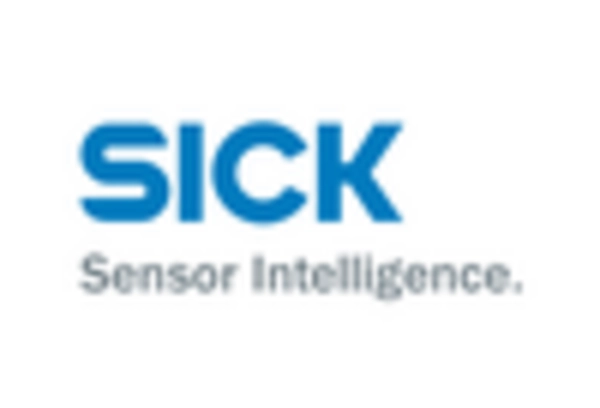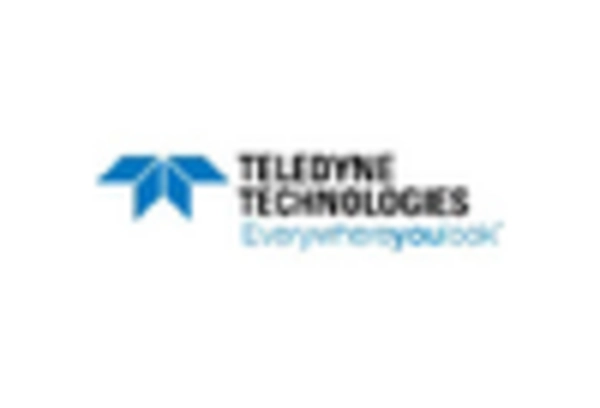Leading market players are investing heavily in research and development in order to expand their product lines, which will help the AI Vision Inspection Market, grow even more. Market participants are also undertaking a variety of strategic activities to expand their footprint, with important market developments including new product launches, contractual agreements, mergers and acquisitions, higher investments, and collaboration with other organizations. To expand and survive in a more competitive and rising market climate, AI Vision Inspection industry must offer cost-effective items.
Manufacturing locally to minimize operational costs is one of the key business tactics used by manufacturers in the AI Vision Inspection industry to benefit clients and increase the market sector. In recent years, the AI Vision Inspection industry has offered some of the most significant advantages to industries.
Major players in the AI Vision Inspection Market, including NVIDIA Corporation (US), Intel Corporation (US), Microsoft (US), IBM Corporation (US), Qualcomm Technologies Inc. (US), Advanced Micro Devices, Inc. (US), Alphabet, Inc. (US), Amazon (US), Basler AG (Germany), Hailo (US), and Groq, Inc. (US), and others, are attempting to increase market demand by investing in research and development operations.
Basler Electric is a family-run company with a reach, with headquarters located in Highland, IL. Through their widespread presence, companies are better able to understand the demands of various markets and applications around the globe and respond to their needs by offering high-quality goods and services. In order to increase its product portfolio and secure a reliable source for plastic parts, Baler purchased a full-service plastic molding company in 2012. Located in San Marcos, Texas, Basler Plastics is a large-scale custom plastics injection modular that has received UL approval and ISO certification.
In order to enhance its offerings and competencies, Basler produced Basler Services, LLC, which was formerly known as E2 Power Systems.
In October Basler unveiled a new model in its flame Time-of-Flight (ToF) camera family. This model has a sturdy and small design, making it ideal for interior applications in manufacturing automation and logistics. The model features a working distance of 0.3 to 10 meters, a remarkable 67° x 51° field of view, and near-infrared operating at 850 nm.
IBM is a multinational technology company based in Armonk, New York, with operations in more than 175 nations. It offers web hosting and consulting services in fields from mainframe computers to nanotechnology, with a focus on computer hardware, middleware, and software. IBM is the world's largest industrial research organization, with 19 research sites spread across 12 countries. From 1993 to 2021, the company held the record for the most yearly US patents generated by a firm.
In January 2023, the Mohammed Bin Zayed University of Artificial Intelligence and IBM officially opened an AI Center of Excellence during the World Future Energy Summit during Abu Dhabi Sustainability Week. The Center seeks to promote cooperation in order to increase AI technology adoption and support sustainability. The Center will fight climate change, create carbon-neutral alternatives to current energy sources, and advance Arabic dialect natural language processing (NLP).
